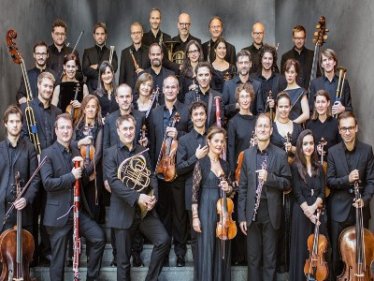Messiah - Schedule, Program & Tickets
Messiah
Oratorio in three parts (1742)
Music by Georg Friedrich Handel
Libretto by Charles Jennens
Concert performance in English
Georg Friedrich Handel created many outstanding masterpieces, but Messiah in particular has contributed to his fame through the changing musical developments and fashions of the last 250 years. Handel wrote the oratorio in London in 1741, then went to Dublin for ten months, where he premiered it in 1742 as part of a benefit concert. This first performance was an enormous success, the newspaper asked, "Gentlemen may come without swords and women without hoop skirts, in order to make space for a larger audience and thus to create higher income for good causes". Edward Synge, Bishop of Elphin, wrote overwhelmed: “Although Mr. Handel already surpasses all other composers with his oratorios, he seems to have surpassed himself in Messiah. It seems to me to be a special kind of music, very different from all the others. ”In London, on the other hand, the enthusiasm was initially moderate, but the work soon spread across England and the continent. Handel himself repeatedly adapted the music to the respective new performance conditions so that today a number of variants are known, but not the exact form of the original version. Over the years, the number of participants grew, there were gigantic performances with over 500 musicians, who celebrated the praise of the Savior more and more overwhelmingly. The libretto is based on scriptures compiled by Handel's friend and patron Charles Jennens. However, the oratorio does not tell the story of Jesus' life and death - as one might think - but is more an abstract, theological discussion of the fact that Jesus was really the Messiah announced by the prophets. He himself does not appear. Statements of the Old Testament are interpreted Christologically and related to Jesus as the New Testament describes him. The basic gesture of the texts is the struggle for the Christian faith. Handel's music finds overwhelming expression for human fears and hopes, feelings of guilt, contrition and exultant certainty of redemption: “And he shall reign for ever and ever. Hallelujah! "
Subject to changes.
Music by Georg Friedrich Handel
Libretto by Charles Jennens
Concert performance in English
Georg Friedrich Handel created many outstanding masterpieces, but Messiah in particular has contributed to his fame through the changing musical developments and fashions of the last 250 years. Handel wrote the oratorio in London in 1741, then went to Dublin for ten months, where he premiered it in 1742 as part of a benefit concert. This first performance was an enormous success, the newspaper asked, "Gentlemen may come without swords and women without hoop skirts, in order to make space for a larger audience and thus to create higher income for good causes". Edward Synge, Bishop of Elphin, wrote overwhelmed: “Although Mr. Handel already surpasses all other composers with his oratorios, he seems to have surpassed himself in Messiah. It seems to me to be a special kind of music, very different from all the others. ”In London, on the other hand, the enthusiasm was initially moderate, but the work soon spread across England and the continent. Handel himself repeatedly adapted the music to the respective new performance conditions so that today a number of variants are known, but not the exact form of the original version. Over the years, the number of participants grew, there were gigantic performances with over 500 musicians, who celebrated the praise of the Savior more and more overwhelmingly. The libretto is based on scriptures compiled by Handel's friend and patron Charles Jennens. However, the oratorio does not tell the story of Jesus' life and death - as one might think - but is more an abstract, theological discussion of the fact that Jesus was really the Messiah announced by the prophets. He himself does not appear. Statements of the Old Testament are interpreted Christologically and related to Jesus as the New Testament describes him. The basic gesture of the texts is the struggle for the Christian faith. Handel's music finds overwhelming expression for human fears and hopes, feelings of guilt, contrition and exultant certainty of redemption: “And he shall reign for ever and ever. Hallelujah! "
Subject to changes.
There are no products matching the selection.


